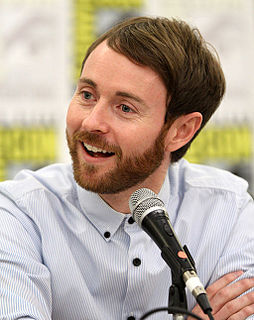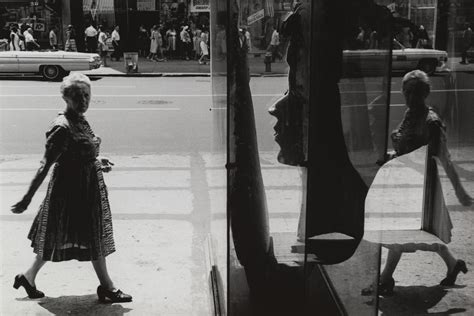A Quote by Aaron Ruell
The mindset that I have on every project I take on is, 'How do I make this interesting enough for me to want to stop and look at it?' So in that regard, what I do behind the camera, whether it's still or motion picture, is the same.
Related Quotes
The story man must see clearly in his own mind how every piece of business will be put over. He should feel every expression, every reaction. He get far enough from his story to take a second look at it... to see whether there is any dead phase... to see whether the personalities are going to be interesting and appealing to the audience. He should also try to see that the things that his characters are doing are of an interesting nature.
Most people assume because I'm an actor that's all I know about and care about, I'm actually a camera geek and a film geek. I grew up making short films the same time I was acting. For me, it's a motion picture, not a play. I'm just as interested in what the camera department is doing and world building through costume design and production design as I am in acting. I think all good directors do that whether they're an actor or not.
First of all, feminism is not man-hating, not man-berating. It is not saying we are better. It is just saying we want the same opportunities, and we want to be able to make decisions on our own without being judged for them. We want the same freedom men have enjoyed over the years, so I think that's the place where we are. And it's completely not mutually exclusive at all for how you want to look, how you take care of yourself, how you want to be, what you want to look like.
Being behind the camera you have control; you have the ability to make decisions for characters, for where the story line's going to go, how you want to put it out there, how you want to edit it. Acting is like where you paint on the canvas, and being behind the camera is like being either the paint or the paintbrush. They're both a part of the creative process, it's just that they have two different functions.
Academy of Motion Picture Arts and Sciences, fellow members of the motion picture industry and honored guests. This is one of the happiest moments of my life, and I want to thank each one of you who had a part in selecting me for one of their awards for your kindness. It has made me feel very, very humble and I shall always hold it as a beacon for anything that I may be able to do in the future. I sincerely hope I shall always be a credit to my race and to the motion picture industry. My heart is too full to tell you just how I feel, and may I say thank you and God bless you.
The same law takes place in a system, consisting of many bodies, as in one single body, with regard to their persevering in their state of motion or of rest. For the progressive motion, whether of one single body or of a whole system of bodies, is always to be estimated from the motion of the center of gravity.
I started to do stop-motion when I was a kid. You take a Super 8 and make some models, and move, click, move, click. All that. I love all forms of animation, but there is something unique and special to stop-motion: it's more real and the set is lit like a set. But I think it's also a kind of lonely and dark thing to want to do.
For me, it's not important whether [subjects] are naked, half-naked, or dressed. What I'm more interested in is how they present themselves: if someone is half-naked and having self-confidence or you have the feeling that she has or he has control of the situation. She likes to do it. Then I have nothing against it. But it's true that society doesn't talk about such issues. They just talk about whether there is a breast or not, but for me it's more interesting how the power game of camera and object is shown. And if it's a cool picture.
When you take a picture you haven't a clue that it is going to be what it is. Maybe you have a clue but you don't really know. There are too many possibilities. Part of the game is how many balls you can juggle. It is to me. When you are 12 you can juggle two. Maybe when you are 50 you can juggle five. That is an interesting concept to me: how much I can put in and still make it pull together?






































